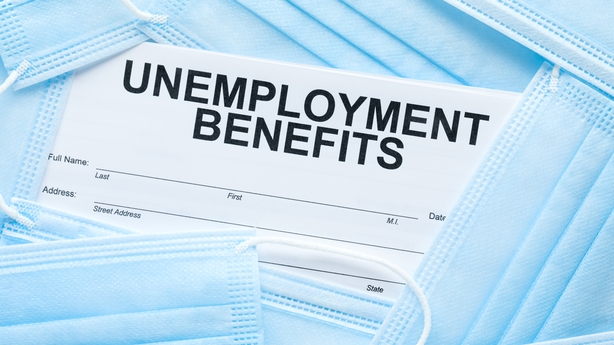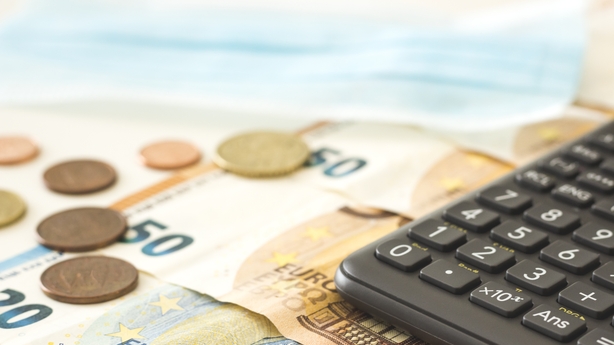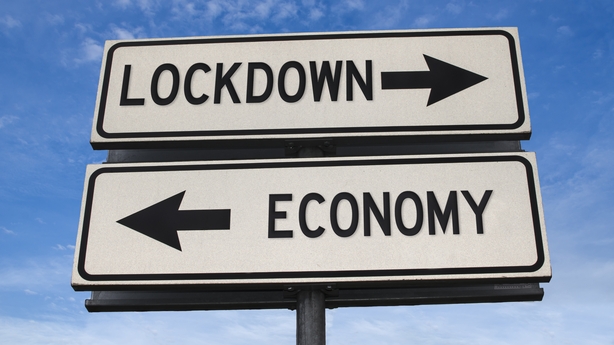Supporters say it was a remarkable social policy achievement during extraordinary times.
Critics say it was overly generous and acted as a disincentive to work.
Love it or hate it, the Pandemic Unemployment Payment (PUP) is no more.
Supposed to be temporary
The payment was first introduced as the Covid-19 pandemic struck in March 2020 and was originally intended to be a six-week, short-term measure.
Two years and €9 billion later, the final PUP payments have been issued.
The remaining recipients will transition to jobseekers' payments from Tuesday, if they are deemed eligible.
The scheme was closed for new applications on 22 January and last week final payments to the remaining 44,747 claimants were processed.
At one stage, the PUP was paid at a flat rate of €350 a week before being restructured and linked to previous earnings.

A 'blunt instrument’
The PUP was a universal payment for anyone who lost their job during the pandemic - leading to criticism that it should have been more focused on those who needed it most.
"There were certainly people who came from high income households who received the payment but it was a measure that was brought in very quickly so it probably wasn't targeted as efficiently as we might like," said Conall Mac Coille, Chief Economist at Davy.
"A Comptroller and Auditor General Report suggested that maybe checks might have been introduced faster and there was certainly a degree of fraudulent claims," he added.
In September last year, the C&AG released a report which found almost 10% of PUP claimants were not eligible for the income support scheme.
In one quarter of the cases sampled by the State's spending watchdog, there was no evidence the claimant had been working prior to the pandemic, which was one of the criteria for eligibility.
Unlike many of our European neighbours, Ireland's jobseekers' payments are not linked to previous earnings until the PUP came along.
Officials also relied on people’s own declarations that they resided in the State .
The Department of Social Protection said at the time that the "emergency" nature of the scheme meant the risk of overpayments "would be higher than normal".
"It was a blunt instrument, it was brought in quickly but it did its job - help people who lost their jobs very suddenly when the pandemic struck," according to Davy's Conall Mac Coille.
Defenders of the PUP are quick to point out that the levels of fraudulent claims were low as a proportion of the overall cost.
"€25m went to people who weren’t eligible but that has to be taken in the context of the €9 billion that was spent on the scheme," said Dr Laura Bambrick, Social Policy Officer with the Irish Congress of Trade Unions.

A ‘truly remarkable’ scheme
Dr Bambrick described the speed at which the PUP scheme was launched as "truly remarkable".
"It was designed, agreed by the government and in people’s pockets within a fortnight. Normally it takes decades to bring about income protection policies," she said.
She added that while the pandemic was a global health emergency, it was also a financial crash that damaged the economy and the labour market in an unparalleled way.
"In May 2020, a few weeks after the PUP was introduced, unemployment climbed to an unprecedented 32%. That was twice the previous record high which was experienced during the economic crash.
"At the peak of the PUP it went to over 600,000 workers. Over the course of the two years, 880,000 workers were reliant on it at one time or another. That’s a third of the workforce, an incredible number," she said.
Dr Bambrick also defended the universal nature of the payment.
"It had to get to people quickly and it had to be adequate to support them when it wasn’t possible to find another job," she said.
"A Government-mandated order was taking away workers’ fundamental right to work and to earn, so we had to make sure that people were still able to pay the bills."

A disincentive to work?
"There was some anecdotal evidence that the PUP acted as a disincentive for people to go back to work," according to Conall Mac Coille of Davy.
"When it was at €350 a week, it was more advantageous than working part time and it would not have been something that would have been sustainable during normal economic times but clearly during the lockdown a lot of people lost their employment," he said.
Dr Laura Bambrick of ICTU rejected the narrative that the PUP resulted in people choosing to stay at home rather than seeking employment.
"We heard claims that it was making people lazy and it was like winning the lottery but what we actually saw was that every time the economy reopened, workers left the PUP payment in large numbers," she said.
"Only 4% of the one million people who relied on the PUP were on it for longer than a year. People went back to work at the first opportunity.
"The PUP was a success, we know that the risk of poverty would have been substantially higher without this payment," she added.

The legacy of PUP
As we, hopefully, move into the post-pandemic era, there are lots of conversations about the lessons we have learned from Covid-19 and the things that will stay with us into the future.
Legislation on paid sick leave and the right to request remote working will soon be finalised. Zoom calls, virtual meetings and mask-wearing will continue for many people.
The Pandemic Unemployment Payment may be no more but it, too, will likely leave its mark.
Unlike many of our European neighbours, Ireland's jobseekers' payments were not linked to previous earnings until the PUP came along.
Now, the Government is considering using it as a template to reform unemployment supports and move towards pay-related allowances.
If the legacy of the Pandemic Unemployment Payment will be a fairer, more efficient social protection system then surely that is to be welcomed.
Even by those who did not feel the PUPpy love.







